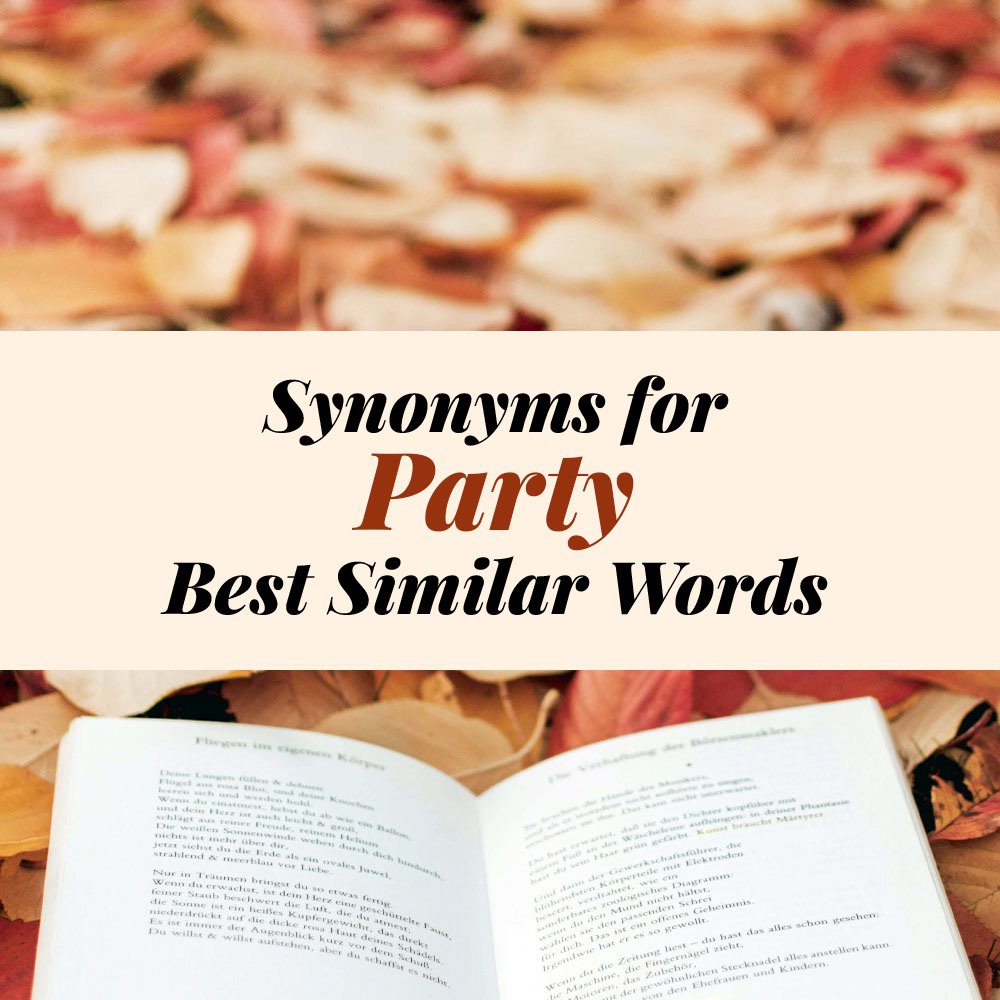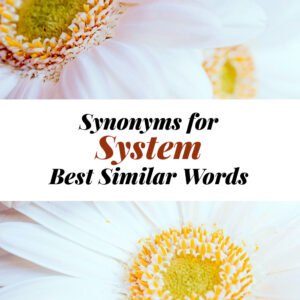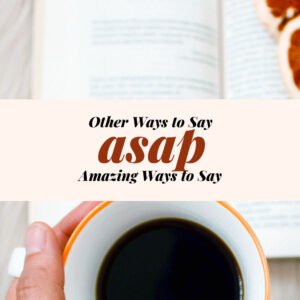Looking for fun ways to say party? There are many words you can use, like celebration, gathering, or bash. Using different words makes your writing or talking more exciting. You can easily mix these words when inviting friends or describing events. In this article, we will explore 23 synonyms for party with meanings and examples to help you understand how to use them in real life.
| Synonym | Meaning | Example |
|---|---|---|
| Celebration | A joyful event to mark a special occasion | We had a big celebration for her birthday. |
| Gathering | A small meeting of people | There was a friendly gathering at his home. |
| Bash | A lively and fun party | They threw a huge bash for the New Year. |
| Festivity | Enjoyment or fun during an event | The city was full of festivities all week. |
| Shindig | A lively party with music and dance | We went to a shindig last night downtown. |
| Get-together | A casual meeting or party | Our family had a get-together on Sunday. |
| Soiree | A formal evening party | She invited us to a soiree at her house. |
| Reception | A formal celebration, often after an event | The couple had a wedding reception nearby. |
| Jamboree | A large fun event with many people | The school hosted a fun jamboree outdoors. |
| Fete | A special event, often to honor someone | The village held a fete for the mayor. |
| Fiesta | A festive party, often with food and music | They enjoyed a colorful fiesta in Spain. |
| Blowout | A very large and fun party | He organized a birthday blowout for his kids. |
| Reception | A formal event celebrating someone or something | The office held a reception for the new manager. |
| Celebration | An event to celebrate something | They had a grand celebration for the holidays. |
| Fest | A festival or party with many people | The town arranged a music fest this weekend. |
| Wingding | An exciting and fun party | They hosted a wild wingding last Saturday. |
| Meet-up | A casual gathering with friends | Our friends planned a weekend meet-up. |
| Function | A social event or gathering | The hotel hosted a large function last night. |
| Revelry | Enjoying festivities with noise and fun | The streets were full of revelry on New Year’s Eve. |
| Celebration | An event to honor something | We joined the celebration for the festival. |
| Shindig | A lively gathering with fun and music | Their weekend shindig had everyone dancing. |
| Party | A social event with friends or family | The kids had a birthday party in the park. |
| Gathering | A small friendly meeting | Our neighbors joined a gathering in the evening. |
23 Different Ways to Say PARTY: Another Word for PARTY
Celebration
A celebration is a happy event to mark something special, like a birthday, holiday, or achievement. It can be big or small. Usually, people invite family and friends to enjoy together. Celebrations often have food, music, and decorations. They create happy memories and give people a chance to enjoy life. You can also celebrate accomplishments like graduation, promotions, or personal successes. A celebration is not always formal, and it can be as casual as a backyard barbecue. It makes people feel happy and connected. Using the word celebration in place of party makes your sentence sound more exciting and meaningful. You can also use it when planning events or writing invitations. It’s a very flexible word.
- We had a celebration after finishing the project.
- The school organized a celebration for the students’ achievements.
- Their celebration lasted all evening with music and dancing.
Gathering
A gathering is a meeting of people, usually for friendship or social purposes. It can be small, like friends meeting for coffee, or bigger with many guests. Gatherings often involve talking, sharing meals, or enjoying games together. They are not always formal, and the main focus is being with people you like. You can also have gatherings at home, parks, or restaurants. Using gathering instead of party sounds softer and more inviting. People may feel more comfortable attending a gathering than a big party. It is perfect for casual events where the goal is to enjoy each other’s company. It is a useful word for writing invitations and describing social meetings.
- We had a small gathering at my house.
- The friends enjoyed a quiet gathering in the park.
- Our office held a gathering to welcome new employees.
Bash
A bash is a fun, exciting, and lively party. It often involves music, dancing, and lots of laughter. Bashes are usually big events where many people come together to celebrate. It is an informal word, and it shows energy and enjoyment. People throw bashes for birthdays, holidays, or special achievements. Using bash makes your sentence sound playful and fun. It is also perfect for social media posts when you describe events. The word suggests that people will have a lot of fun and enjoy themselves fully. A bash can be indoors or outdoors, and decorations, food, and drinks often make it livelier.
- They threw a big bash for his 30th birthday.
- Everyone danced at the New Year’s bash.
- The summer bash at the beach was amazing.
Festivity
Festivity refers to joyful and lively activities during a celebration or party. It is not just about one event, but all the fun, music, and games that happen during a celebration. Festivities can be short or last for days, like festivals or special holidays. People enjoy different activities during festivities, like eating, dancing, singing, and socializing. Using festivity adds a sense of excitement to your writing. It also emphasizes the fun and enjoyment of the event. You can use it to describe community events, school functions, or family parties. Festivities create a happy environment and give everyone a chance to relax and enjoy themselves.
- The city was full of festivities during the holiday season.
- The school organized festivities for the annual day.
- Everyone enjoyed the music and games in the festivities.
Shindig
A shindig is a lively and fun party where people enjoy music, dancing, and socializing. It is informal and usually involves friends and family. Shindigs can be small or large, indoors or outdoors. The main idea is to have fun and spend time with others. Using shindig instead of party makes your description more exciting and energetic. It shows that the event is not formal and everyone is free to enjoy themselves. People often use shindigs for casual celebrations, weekend parties, or community events. A shindig creates joyful memories and is remembered as a happy event.
- We went to a shindig downtown last night.
- The weekend shindig was full of music and dancing.
- They organized a summer shindig at the beach.
Get-together
A get-together is a casual meeting of friends, family, or colleagues. It is not usually very big or formal, and the goal is to spend time with others. Get-togethers often involve food, drinks, and conversations. They are perfect for catching up with people or celebrating small events. Using get-together instead of party makes your event sound friendly and welcoming. It can be held at home, restaurants, parks, or offices. People often use it to plan weekend meetings, birthdays, or small celebrations. It focuses on enjoying company and making memories rather than organizing a large event.
- We had a family get-together on Sunday.
- The friends planned a weekend get-together.
- Our office had a small get-together for the manager.
Soiree
A soiree is a formal evening party, often with music, dinner, or drinks. It is usually held at someone’s home or a special venue. Soirees are elegant and often involve dressing up nicely. Using soiree instead of party gives a sense of sophistication and style. It is commonly used for adult gatherings, art events, or formal celebrations. People enjoy socializing, dancing, or discussing ideas during a soiree. It creates a classy atmosphere and makes the event feel special. Invitations for a soiree are usually formal, and guests may follow a theme. It is a great word to describe upscale events.
- She invited us to a soiree at her house.
- The charity soiree raised money for a good cause.
- Everyone enjoyed the elegant soiree downtown.
Reception
A reception is a formal event to celebrate something, often a wedding, promotion, or special occasion. People usually gather to eat, drink, and enjoy conversations. Receptions can be big or small, but they are always organized to honor someone or something. Using reception instead of party adds a formal tone to your writing. Guests may dress nicely, and there may be speeches, music, and entertainment. Receptions are common in weddings, corporate events, or award ceremonies. They help people connect, celebrate achievements, and have fun in a polite environment. It is a respectful word for important celebrations.
- The couple had a wedding reception nearby.
- The company held a reception for the new CEO.
- We attended the graduation reception at the hall.
Jamboree
A jamboree is a large, lively, and fun event where many people gather. It often involves games, music, dancing, and entertainment. Jamborees can be held by schools, communities, or clubs. Using jamboree instead of party shows that the event is big and exciting. It is commonly used for festivals, sports, or community activities. People of all ages enjoy jamborees because they have activities for everyone. It creates a fun and energetic environment. Organizing a jamboree requires planning for food, music, and games, but it is very enjoyable for participants.
- The school hosted a fun jamboree outdoors.
- The community jamboree had games for kids.
- We joined the music jamboree in the park.
Fete
A fete is a special event, often organized to honor someone or raise funds. It can be small or big and usually includes food, games, and entertainment. Fetes are often held outdoors, in community spaces, or at schools. Using fete instead of party gives a sense of celebration with purpose. It can honor achievements, celebrate holidays, or support charities. People enjoy fetes because they are lively and include different activities. It is a friendly and inviting word for celebrations that bring people together. Fetes create happy moments and often include traditional games or performances.
- The village held a fete for the mayor.
- Our school arranged a fete to raise funds.
- The charity fete included music and food.
Fiesta
A fiesta is a festive event, often with music, dance, and food. It is commonly used in Spanish-speaking countries. Fiestas are colorful, lively, and full of energy. Using fiesta instead of party shows that the event is joyful and vibrant. People celebrate fiestas during holidays, cultural events, or birthdays. Music, dance, and traditional food are often part of the celebration. Fiestas create a cheerful and exciting atmosphere. Friends and family enjoy spending time together and making memories. It is a fun word to describe big, energetic, and festive gatherings.
- They enjoyed a colorful fiesta in Spain.
- The town organized a summer fiesta with music.
- Our family had a birthday fiesta with dancing.
Blowout
A blowout is a very large, exciting, and fun party. It usually involves food, drinks, music, and dancing. Blowouts are informal and meant for everyone to enjoy themselves fully. Using blowout instead of party makes it sound like a big celebration. People often organize blowouts for birthdays, holidays, or achievements. They are loud, energetic, and memorable. A blowout can last all day or night. It creates a lively environment where guests feel free to relax and have fun. Blowouts are remembered as big events with joy and laughter.
- He organized a birthday blowout for his kids.
- The New Year’s blowout was full of lights and music.
- Our summer blowout had games and fireworks.
Function
A function is a social event, meeting, or party organized for a particular purpose. It can be formal or informal. Functions often involve food, drinks, and entertainment. Using function instead of party gives a professional or formal tone. People attend functions for weddings, corporate events, or celebrations. Functions may include speeches, music, or performances. They provide opportunities to connect with others, celebrate achievements, or enjoy social activities. Functions can be big or small, and planning them carefully ensures everyone enjoys the event. It is a versatile word that works for many occasions.
- The hotel hosted a large function last night.
- Our office held a welcome function for new employees.
- The club organized a function to celebrate its anniversary.
Wingding
A wingding is an exciting and fun party, often wild and lively. It usually includes music, dancing, and lots of enjoyment. Using wingding instead of party gives a playful and energetic feel. People use wingding for casual celebrations, birthdays, or weekend events. It is informal and suggests that the event will be full of energy and laughter. Wingdings are remembered for fun and joyful experiences. They can be big or small, indoors or outdoors. The word emphasizes fun, making everyone feel excited to attend.
- They hosted a wild wingding last Saturday.
- Everyone danced at the weekend wingding.
- The summer wingding had lots of food and music.
Meet-up
A meet-up is a casual gathering, often with friends or people who share interests. It is informal and usually small. Meet-ups involve conversations, food, or drinks. Using meet-up instead of party makes it sound friendly and approachable. People often organize meet-ups for socializing, hobbies, or small celebrations. It can happen at homes, cafes, or public places. Meet-ups focus on spending time together and enjoying each other’s company. They are easy to plan and create good memories.
- Our friends planned a weekend meet-up.
- The hobby group had a meet-up at the park.
- We joined a meet-up to celebrate the festival.
Revelry
Revelry means enjoying parties or celebrations with noise, fun, and excitement. It usually involves music, dancing, and laughter. Revelry can happen in small gatherings or large events. Using revelry instead of party highlights the joyful and noisy atmosphere. People enjoy revelry during festivals, holidays, or personal celebrations. It creates a lively environment where everyone participates. Revelry often involves eating, drinking, and socializing. It makes the event memorable and full of energy.
- The streets were full of revelry on New Year’s Eve.
- Everyone joined the festival revelry with music.
- The birthday revelry lasted all night with dancing.
Fiesta
A fiesta is a festive celebration with music, food, and dancing. It is energetic, fun, and colorful. Using fiesta instead of party shows excitement and cultural joy. People often enjoy fiestas during holidays or special events. They include singing, dancing, and socializing. Fiestas create a cheerful and happy atmosphere. They are often shared with friends, family, or the community.
- The town held a summer fiesta with games.
- We joined a birthday fiesta with music and dance.
- Their holiday fiesta included traditional food and songs.
Bash
A bash is a lively and fun party with lots of people, music, and activities. It is informal and meant to enjoy fully. Using bash instead of party makes the celebration sound playful. Bashes are perfect for birthdays, holidays, or weekend gatherings. People enjoy dancing, chatting, and celebrating together. It creates lasting memories of fun and laughter.
- They threw a big bash for her graduation.
- Everyone danced at the weekend bash.
- The office had a summer bash with games and food.
Gathering
A gathering is a meeting of friends or family to enjoy each other’s company. It can be casual or slightly formal. Using gathering instead of party emphasizes togetherness. Gatherings can include food, drinks, and conversations. They help strengthen relationships and create memorable moments.
- Our family had a gathering at home.
- Friends joined a quiet gathering in the garden.
- The community planned a gathering for the festival.
Celebration
A celebration is an event to mark a special occasion or achievement. It can be large or small, formal or informal. Using celebration instead of party emphasizes the importance of the event. Celebrations often include food, music, and fun activities. They create happiness and strengthen bonds.
- We had a celebration for finishing the project.
- The school organized a celebration for students.
- They enjoyed a holiday celebration with family and friends.

Final Thoughts
Using different words for party makes your writing lively and engaging. From bash to soiree, each word adds a unique feeling to your event description. Choose the right synonym for the mood and size of your celebration. Enjoy planning your next gathering creatively.









